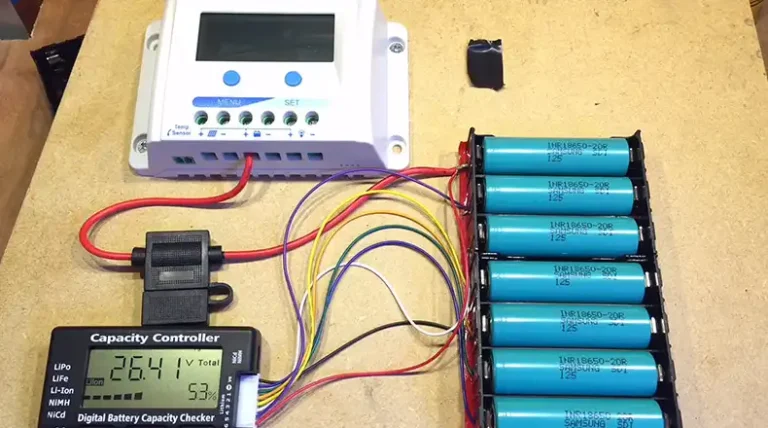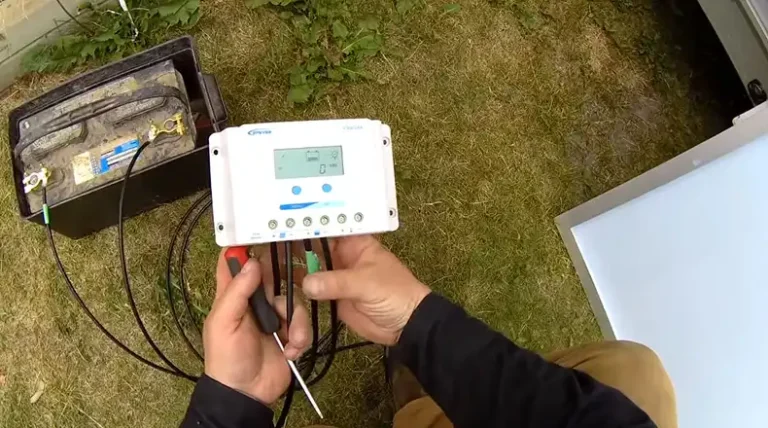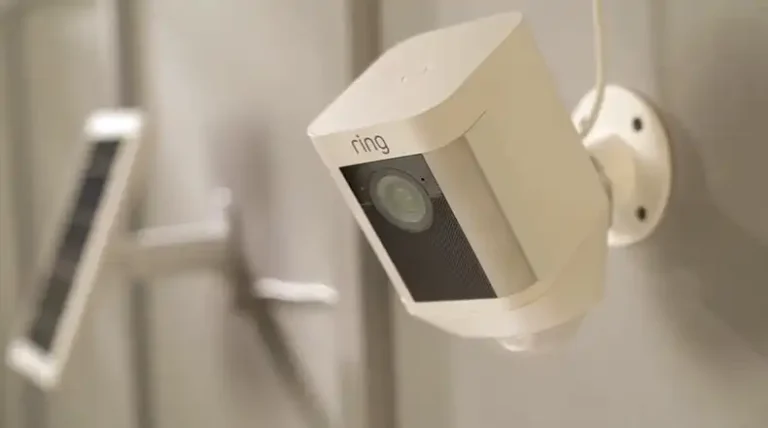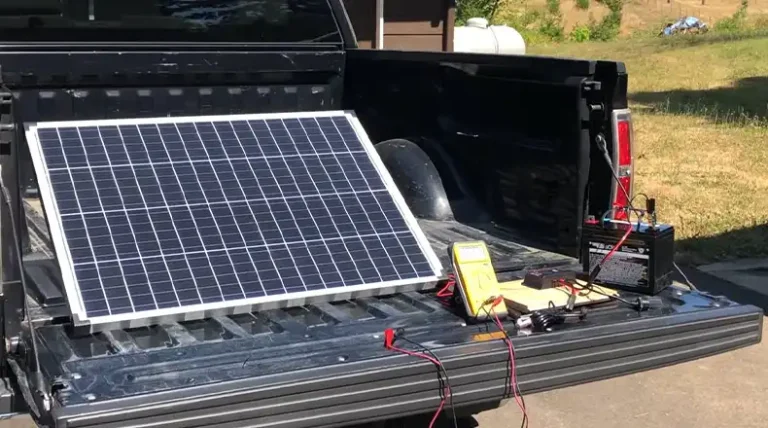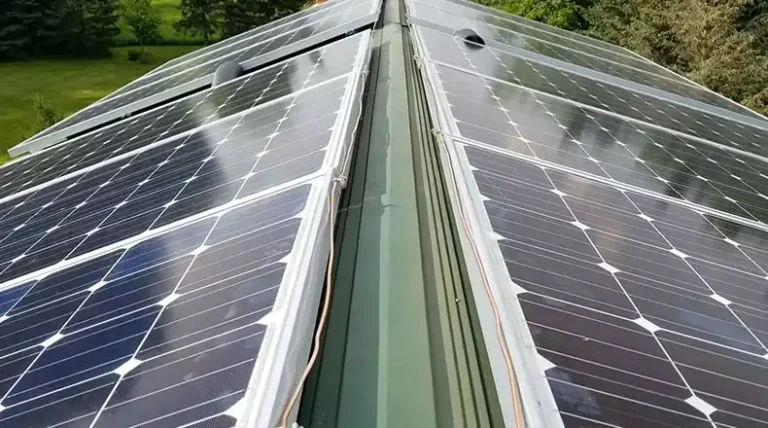How Many Batteries Are Needed for a 1000-Watt Solar System?
Battery storage in your solar energy system allows you to retain power overnight or during grid outages. But properly sizing the battery bank capacity is crucial to meet your household’s energy needs. But do you know how many batteries are needed for a 1000-watt solar system?
For a 1,000 watt solar system, the number of batteries is typically between 10-20. However, the right number of batteries for a 1,000 watt solar panel system depends on factors like daily energy use, desired backup time, and battery specifications. Lithium-ion batteries require fewer units than lead-acid due to their higher energy density and efficiency.
With some key estimates and calculations, you can easily understand how many batteries are needed for your 100-watt solar system. Let’s calculate below!
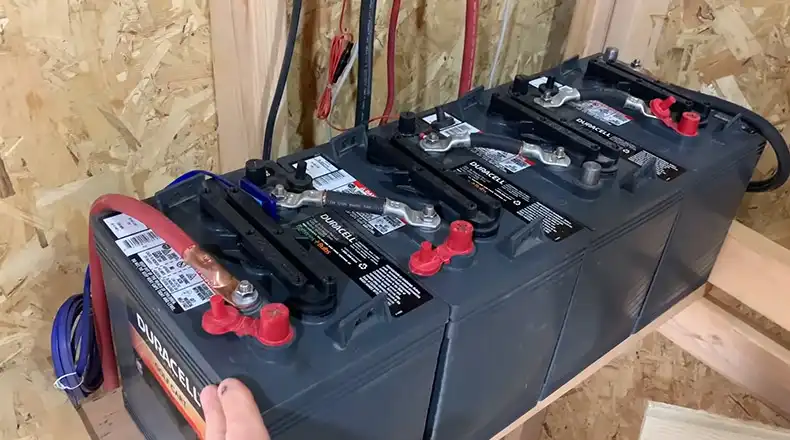
What Determines Battery Capacity Needs?
The key factors that influence how many solar batteries you need are:
- Household energy consumption – The average daily energy use that needs to be stored.
- Solar system size – The panels’ rated output affects charge availability.
- Desired backup time – The number of hours energy needs to be retained per cycle.
- Battery types – Energy density, efficiency, voltage and amp-hour ratings all vary.
- Critical loads – Will you only power selective appliances or the full home?
Calculation: the Number of Batteries for a 1,000 Watt Solar System
Let’s consider a scenario:
Daily energy use: 40 kWh
Backup time: 8 hrs
Battery: Lithium-ion (90% efficient)
Total storage needed: 40 kWh * 8 hrs = 320 kWh
Capacity needed: 320 kWh / 0.9 = 356 kWh
As a 48V 500Ah lithium-ion battery bank provides approximately 24 kWh of usable energy (Based on battery specifications),
With a 24 kWh lithium-ion battery, 15 batteries would be required (356 / 24 = 14.83).
Here is a table to identify number of required batteries for a 1,000 watt solar system:
| Household Daily Energy Consumption | Desired Backup Time | Battery Type | Required Battery Capacity (kWh) | Number of Standard 500Ah Batteries |
| 20 kWh | 8 hours | Lead-Acid | 73.33 | 15 |
| 20 kWh | 8 hours | Lithium-Ion | 53.33 | 11 |
| 40 kWh | 8 hours | Lead-Acid | 146.67 | 30 |
| 40 kWh | 8 hours | Lithium-Ion | 106.67 | 22 |
| 50 kWh | 8 hours | Lead-Acid | 183.33 | 38 |
| 50 kWh | 8 hours | Lithium-Ion | 133.33 | 27 |
Importance of Proper Battery Sizing
Properly sizing batteries is critical for a reliable solar energy storage system. Insufficient capacity can lead to power shortages during cloudy days or nighttime, while excess capacity may incur unnecessary costs. Finding the right balance is key to maximizing the benefits of solar energy.
Additional Tips
- Wire batteries in series to increase voltage, or parallel for more capacity.
- Maintain batteries by preventing overcharging, regular cleaning, etc.
- Ensure batteries are properly ventilated to avoid dangerous gas buildup.
- Include a high-quality charge controller and monitor system.
FAQs
How Long Do Solar Batteries Last?
Solar battery lifespan varies but is typically around 5 to 15 years, depending on the type and usage. Properly maintained lithium-ion batteries may last 5-10 years, lead-acid 2-5 years.
Can I Add More Batteries Later?
Yes, battery banks can easily be expanded over time as energy needs increase, as long as the system components are adequately sized. But compatibility and proper wiring must be considered.
Do The Batteries Need An Enclosure?
Batteries must be kept in a non-conductive, ventilated enclosure to protect against environmental hazards and prevent accidental contact.

![[Solved] Why Is My Solar Panel Voltage Low](https://www.itekenergy.com/wp-content/uploads/2024/03/Why-Is-My-Solar-Panel-Voltage-Low-768x428.webp)
